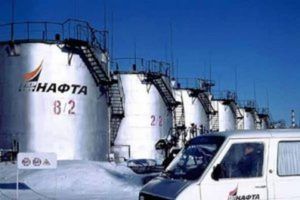Tatneft v Ukraine: U.S. District Court explains impartiality and public policy
 By a decision handed down on 24 August 2020 in PAO Tatneft v Ukraine, the United States District Court for the District of Columbia rejected an application by Ukraine to set aside an award enforcement order.
By a decision handed down on 24 August 2020 in PAO Tatneft v Ukraine, the United States District Court for the District of Columbia rejected an application by Ukraine to set aside an award enforcement order.
Tatneft, the fifth largest oil company in Russia, brought the action to enforce a UNCITRAL arbitral award entered against Ukraine by an ad hoc tribunal in 2014 under the Russia-Ukraine BIT. Ukraine, in its turn, made an attempt to resist enforcement in the U.S. on the basis of a lack of impartiality and public policy exception.
The integrity of arbitral proceedings builds on an assumption of arbitrators’ impartiality and independence. Much controversy, however, remains regarding the meaning and application of the legal concepts. The court had refused to disturb the award and confirmed the high hurdle that needs to be jumped if a party wants to oppose the enforcement of the duly entered final arbitral award. The issues in the decision involve several aspects of impartiality, waiver of challenge, and the ruling provides further guidance on the application of the impartiality standard.
An arbitral tribunal ruled against Ukraine for violating its obligations under the Russia-Ukraine BIT
The underlying dispute in Tatneft v Ukraine relates to shares in Ukrtatnafta, a Ukrainian oil company that operates the largest oil refinery in Ukraine. In 1995, Tatarstan, a federal unit of the Russian Federation, and Ukraine entered into an agreement to create a joint-stock company, with Tatneft, Ukraine, and Tatarstan as its three major shareholders.
In the late 1999s, two other entities, the US-based Seagroup International Inc and Switzerland-based AmRuz Trading AG acquired shareholdings in Ukrtatnfta. In May 2007, the Ukrainian courts nullified the process by which the companies acquired their shareholdings, with those shares being returned to Ukrtatnafta and then sold on to third parties.
Later the same year, the Ukrainian Privat Group acquired a 1% interest in Ukrtatnafta. Subsequently, the Privat Group obtained judgments from the Ukrainian court that purportedly invalidated the 1997 and 1998 shareholder resolutions whereby Tatarstan and Tatneft obtained their interests in Ukrtatnafta, that in turn resulted in Tatarstan being barred from the management of Ukrtatnafta.
As a result, Tatneft invoked the arbitration clause within the Russia-Ukraine BIT, alleging that Ukraine had violated its obligations with regard to granting legal protection to and disallowing discrimination against foreign investors.
The tribunal dismissed Ukraine’s jurisdictional objections and issued an award on the merits in July 2014. It concluded that Ukraine’s actions resulted in total deprivation of Tatneft’s rights as a shareholder of Ukrtatnafta and, further, that Ukraine had failed to provide fair and equitable treatment to the foreign investor.
Procedural Background after the Merits Award
 As reported previously in the CIS Arbitration Forum, Ukraine brought an action before the Paris Court of Appeal in France to annul both the merits award and the earlier jurisdiction decision.
As reported previously in the CIS Arbitration Forum, Ukraine brought an action before the Paris Court of Appeal in France to annul both the merits award and the earlier jurisdiction decision.
Ukraine argued that the appointment of the arbitrator by the law firm representing Tatneft in another dispute in 2011 constituted a reasonable doubt in the arbitrator’s independence and impartiality. The court rejected this argument and concluded the single appointment in seven years’ time frame to be insufficient to meet the legal standard for challenging the award.
Further, in 2017, Tatneft applied to the English courts for permission for enforcement under Section 101(2) of the English Arbitration Act 1996. Ukraine, in its turn, filed an application before the English Commercial Court seeking to set aside the enforcement order on the basis that the English court lacked jurisdiction over Ukraine, which, as argued, still benefited from state immunity as a foreign sovereign state. The Commercial Court rejected Ukraine’s application for the setting aside of the enforcement order in England.
Chasing assets in the United States, Tatneft moved to petition the U.S. District Court of the District of Columbia to confirm and enforce the arbitral award under the New York Convention. In the United States, Ukraine made yet another attempt to resist enforcement of the arbitral award: it again alleged lack of impartiality of the arbitral tribunal and argued that recognition and enforcement would be contrary to the public policy of the United States.
Ukraine contended that President of the Tribunal failed to fulfil his duty of disclosure
More specifically, at the stage of final written submissions on the merits, the law firm that represented Tatneft, approached Mr Vicuña, the President of the tribunal, and he accepted a “prestigious and lucrative appointment” in “a major investment arbitration” being conducted in Washington, D.C. Ukraine asserts that in light of U.S. case law, Mr Vicuña’s failure to disclose an appointment that likely brought him revenue around USD 300,000 would have been more than sufficient to characterize “evident partiality” in the meaning of Section 10(a)(2) of the FAA, and would have been more than sufficient to vacate the award.
Tatneft contested the standard proffered by Ukraine and argued that the FAA’s “evident partiality” standard is used to assess claims in cases involving domestic arbitration awards, but not in international arbitrations.
The court agreed that Ukraine, in challenging Professor Vicuña’s impartiality in an enforcement proceeding of a foreign arbitration award, bore the burden of the higher than the FAA’s “evident partiality” standard. The court specifically noted that:
[W]e have repeatedly cautioned that we are not quick to set aside the results of an arbitration because of an arbitrator’s alleged failure to disclose information.
In order to prevail, Ukraine had to demonstrate that Professor Vicuña’s failure to disclose the appointment violated UNCITRAL Rules and that there was substantial prejudice flowing from any alleged violation, pursuant to the ruling in Compagnie des Bauxites de Guinee.
The District Court noted that the claimant must establish specific facts that indicate improper motives on the part of an arbitrator in order to meet the standard. Accordingly, the court observed that “evident partiality” standard requires showing more than a “mere appearance of potential bias”, such as when a reasonable person, considering all the circumstances, would have to conclude that an arbitrator was partial to one side.
As such, Ukraine had to show that had the arbitrator disclosed his appointment, it would have been disqualifying. In the case at hand, however, Ukraine’s allegations fail because Cleary Gottlieb, the law firm that represented the claimant, put King & Spalding, Ukraine’s counsel, on notice by announcing the upcoming arbitration publicly. Further, King & Spalding itself appointed Professor Vicuña as an arbitrator in one of their subsequent cases and thus must be presumed to become aware of the arbitrations in which Professor Vicuña participated at that time.
The U.S. District Court, applying a more stringent standard to challenges regarding the impartiality of arbitrators in foreign arbitration proceedings, rejected Ukraine’s allegations of lack of impartiality.
Concluding remarks
The court has also refused to entertain Ukraine’s vague claim that Tatneft engaged in some form of illegality and wrongdoing that might be fleshed out through discovery, and, therefore, denied allegations that enforcement of the award would violate the U.S. public policy.
The U.S. District Court of the District of Columbia was the third entity that examined Ukraine’s claim of arbitral impartiality that has been already twice rejected by French and English courts. It demonstrates the U.S. federal courts’ emphatic policy in favour of arbitrations and how notoriously difficult it might be to substantiate allegations of actual bias.
The concepts of neutrality, independence and impartiality play a pivotal role in the arbitral process: courts seek to ensure a fair balance between the parties’ legitimate rights in due process and, at the same time, averting unsubstantiated challenges.
In order that parties can experience a fair process, some judicial review remains a vital part of the arbitration process. However, as the case at hand demonstrates, the U.S. case law established fairly onerous burdens applicable to the challenge of final arbitral awards on the ground of lack of partiality.
The possibility that a member of the arbitral tribunal had prior contact with any of the parties, or its affiliate could never be completely ruled out, this, however, does not immediately cast a shadow over their partiality. In the international arbitration context, arbitrators with niche experience and purview inevitably become repeat players, whilst appointment of the same arbitrator in the seven years’ time frame, as the case at hand highlights, does not per se imply impartiality.











